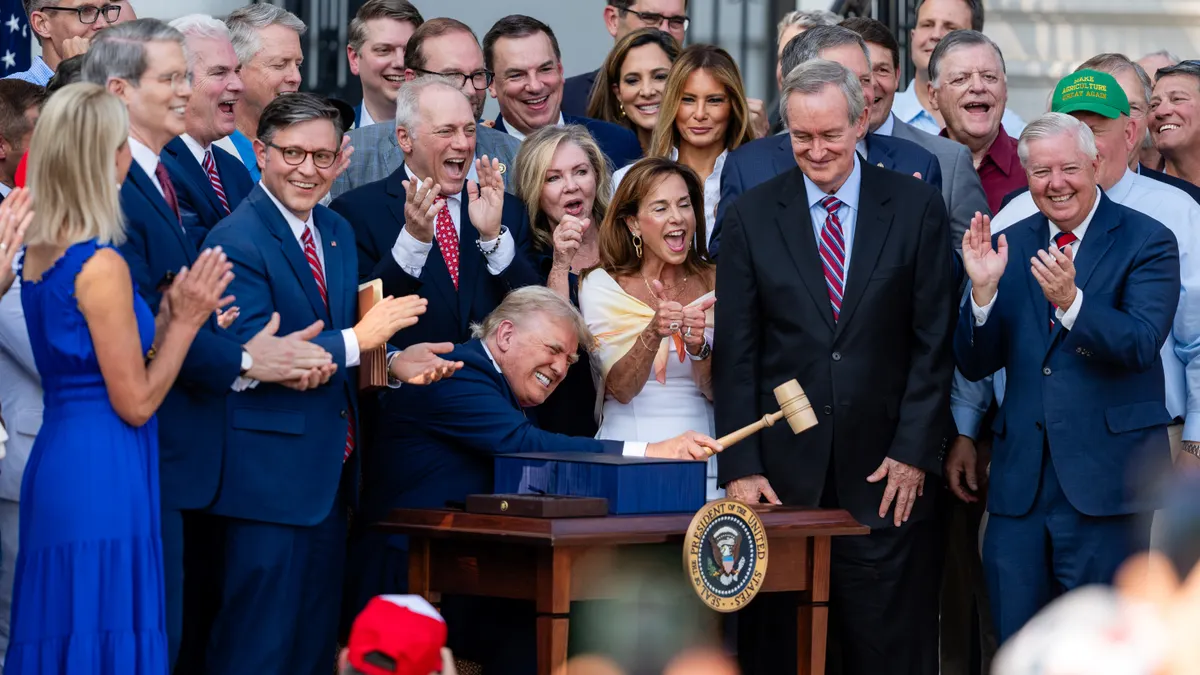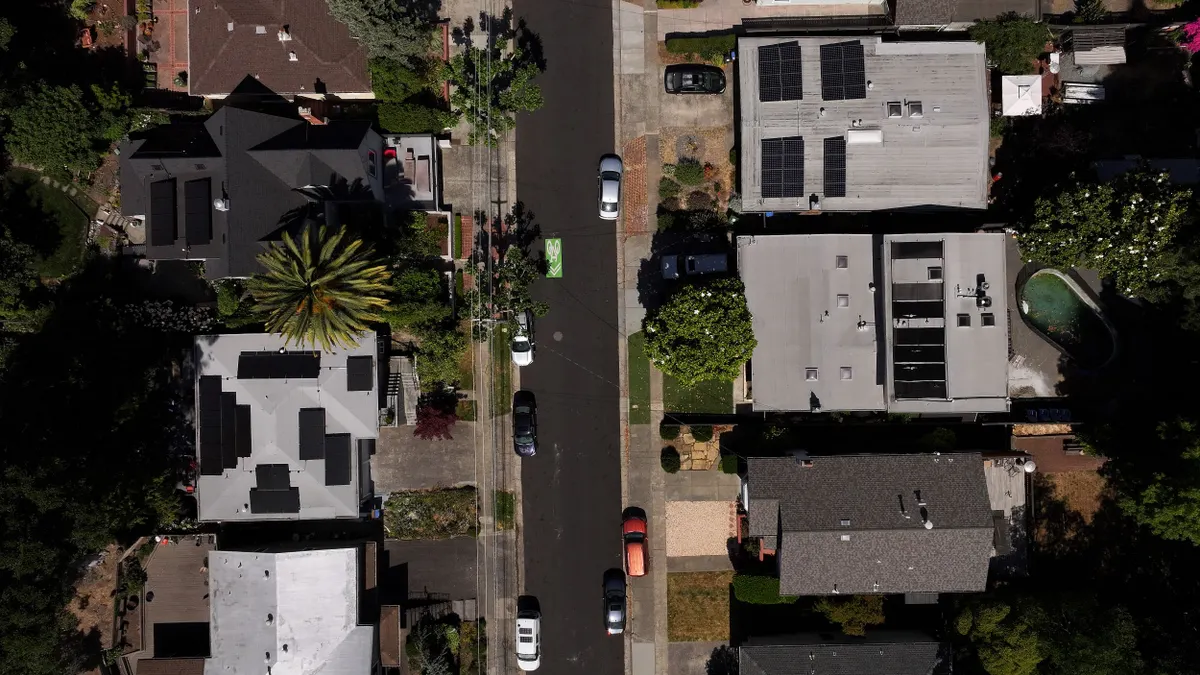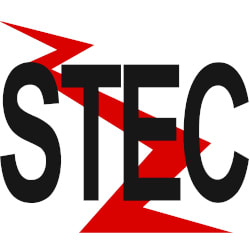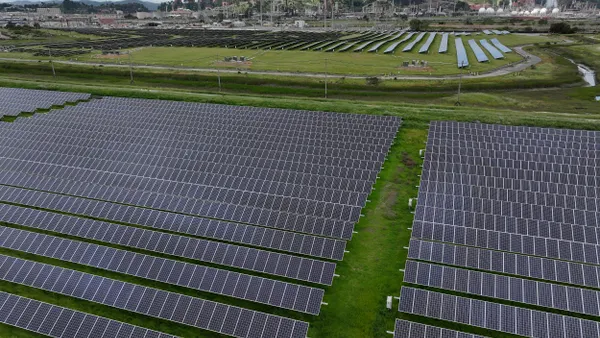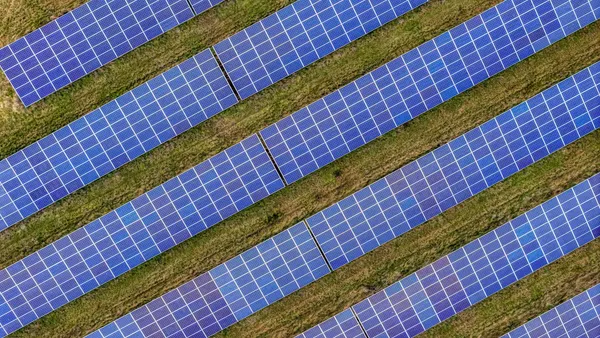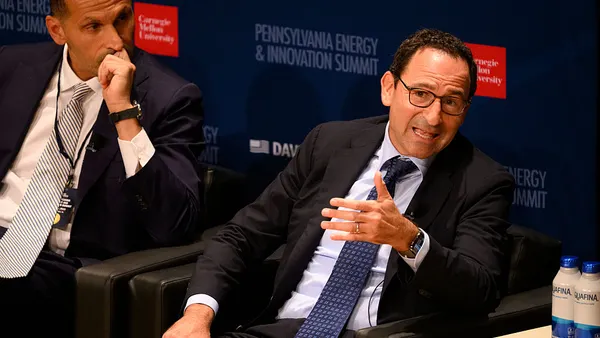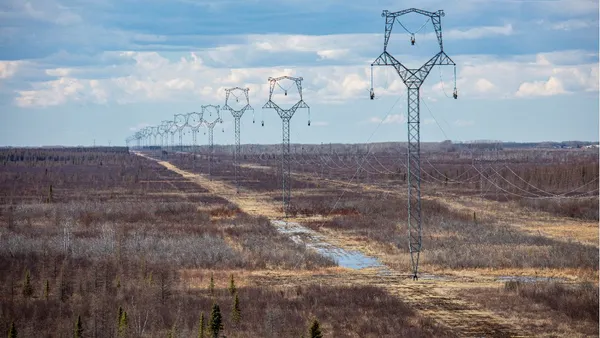Dive Brief:
- Massachusetts Gov. Charlie Baker has filed a bill that would raise the state's private and public net metering caps by 2% each, up to 6% and 7%, respectively.
- The bill would also provide for the development of a program to support solar development beyond the state's current goal of 1,600 MW, and will create a "long term, market-predictable, sustainable framework" for projects, according to a release put out by the Governor.
- The Solar Energy Industries Association (SEIA) issued a statement praising the decision to raise net metering caps, but also said it was concerned the bill's longer-term measures undervalue solar energy.
Dive Insight:
Gov. Baker's proposal, An Act Relative to a Long-Term, Sustainable Solar Industry, would raise net metering cap space by 50% for public entities and 40% for private -- a move solar advocates praised before jumping on other portions of the bill.
“Massachusetts continues to boast a nation-leading solar industry, and this legislation will build upon that continued success while ensuring that our state’s solar market remains viable and sustainable for years to come,” Gov. Baker said in a statement. “In filing this bill, our administration reaffirms our commitment to diversifying the Commonwealth’s energy portfolio, reducing our carbon footprint, and protecting ratepayers.”
The bill would increase caps to provide immediate support for developing additional projects, and would provide the Department of Public Utilities with the authority to raise the caps further. It also creates a market-based net metering credit for installations developed after the state's 1,600 MW goal is reached.
Solar trade group SEIA called the bill "an important step" and thanked the governor for proposing to raise the cap. But the group said other parts of the proposal are problematic for the long-term health of the industry.
"While this bill would address the near-term problem, some of the provisions of the bill that would take effect after a few years would be a backward step for solar in Massachusetts," SEIA Vice President of State Affairs Sean Gallagher said in a statement. "Parts of the proposed bill’s long-term approach to compensating renewable distributed generation are concerning because they undervalue the local, clean, reliable energy that solar projects deliver to our electric grid."
Gallagher said that policy makers need to work with other states that are leading on solar development, such as California and New York, to properly value distributed solar resources.




